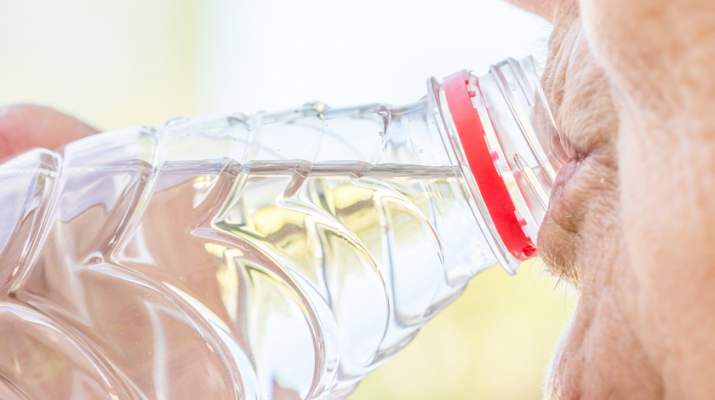By Deborah Jeanne Sergeant

For most people, extremely hot weather is a bit of a nuisance and fodder for light conversation. For elderly people, hot weather can be deadly.
According to the U.S. Environmental Protection Agency, “since 1999, people aged 65-plus have been several times more likely to die from heat-related cardiovascular disease than the general population.”
Heat exhaustion, which can include heavy sweating, pale and clammy skin, body temperature between 100 and 104 degrees, and dizziness, can progress into heat stroke, a life-threatening state in which patients manifest flushed, hot skin; less sweating because of dehydration; disorientation or fainting; rapid respiration; and high or low blood pressure.
So why are older adults more prone to heat exhaustion and heat stroke?
“As people age, they lose their ability to perspire and regulate their body temperature,” said physician Gale R. Burstein, Erie County Department of Health Commissioner. “They lose their sensation of heat or cold. It’s difficult to self-regulate. Their heart rates don’t speed up or slow down. Their skin is thinner and not as good a protector.”
Burstein said that individuals with Alzheimer’s disease are at risk of heat related illness because it’s difficult for them to perceive and communicate feelings of hot and cold. They may take maintenance drugs that compromise their body’s ability to stay cool. They may not drink enough fluids so they won’t have to take so many trips to the bathroom; however, that can lead to dehydration.
Sensitivity for heat worsens the more dehydrated the person becomes; that’s why sufficient hydration represents the first step in combating heatstroke. Small quantities of dark urine can indicate serious dehydration.
Burstein said that waiting until feeling thirsty is too long; that’s the signal for dehydration. Drinking caffeinated beverages like cola, tea or coffee or drinking alcohol tend to further dehydrate people since they are diuretics. Water hydrates best. For people who don’t like the taste of water, adding slices of lemon or cucumber can flavor it.
Some older adults take diuretic medication and should discuss with their doctors about adjusting the dose during hot weather.
Temperatures peak between 11 a.m. and 4 p.m. during very hot days. Robert S. Stall, geriatrician and owner of Stall Senior Medical in Amherst, advises older adults to avoid going outdoors during periods with heat and humidity warning.
For example, garden very early in the morning or closer to sunset or consider hiring temporary help for weeding, pruning and mowing.
Exercise in an air conditioned environment or go swimming. Many communities open their school pools for free recreational use. Libraries, churches, senior centers and shopping malls are also usually air conditioned places where older adults can spend the hottest hours of the day.
Although air conditioners can make hot weather more comfortable, Stall said fans can help. Also, apply cool washcloths on the body periodically or take showers.
Physician Anjeet K. Saini, assistant professor of medicine at UBMD Internal Medicine, division of geriatrics and palliative medicine, advises older adults to stay out of direct sunlight and to wear lighter, thinner clothing.
“Never leave anyone in a parked car,” she said.
It may take a little longer to walk an elderly passenger into the store, but staying out of the heat can be lifesaving. Parked cars can quickly become too hot inside, even with the windows down.
Help Buying an AC
People who need an air conditioner but cannot afford one may be eligible to receive up to $800 in help purchasing and installing a unit through the HEAP Cooling Assistance benefit through Aug. 31 or until funding runs out. Visit http://otda.ny.gov/programs/heap/contacts to find your county’s contacts.

